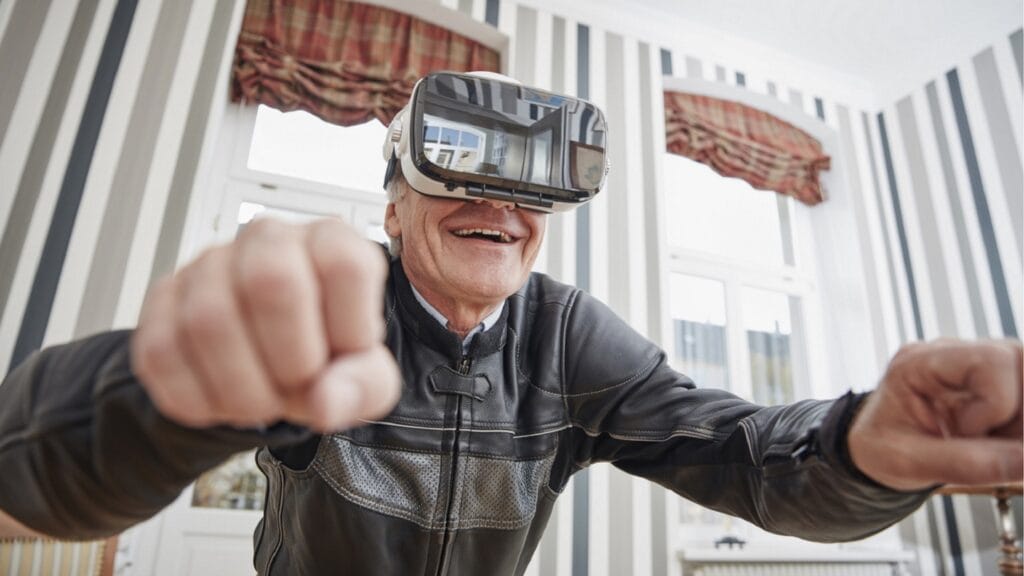
Smartphone dependence is the new reality for seniors, who often are asked to navigate apps as part of their daily routine or for their healthcare. However, augmented reality, or AR, could help make seniors’ app usage less of a challenge, a new report suggests.
AR, is similar to virtual reality, but instead of creating a purely digital world, augmented reality instead adds 3D objects or text to one’s regular field of vision.
Smartphones are no longer mere tools for texting, but are an essential part of seniors’ care management, from EHR portals to telehealth visits.
Because smartphones and their applications are not always user-friendly to seniors, there are now many options available for tech literacy training, authors of the new AR report note.
A video example of how AR can help doctors can be found here.
The researchers developed a new AR program for seniors that is meant to help them use smartphones by creating a number of 3D interactive pointers and reminders, almost like cartoon thought bubbles.
The AR training was particularly helpful in assisting seniors with multi-app usage and trial-and-error app exploration, the researchers stated.
“AR’s role in aiding older adults’ smartphone app exploration remains insufficiently explored,” the study authors wrote. “AR can expand the display of supporting information beyond digital screens, and has the potential to remove the clutter of visual information on phone displays, and thus provide better support for older adults.”
Using senior study participants, the researchers developed an AR program that could aid in a number of ways, including: creating 3D reminders that seemingly “jumped out” of a users’ phone; automatically magnifying portions of a smartphone screen; and creating a larger screen above the existing smartphone that users could navigate with broader hand gestures.
Like virtual reality, AR often involves glasses or a headset. Senior living and care providers have already been investing heavily in these technologies over the past few years, though primarily for entertainment.
But “extended” reality – VR, AR and anything else that overlays digital elements onto the “real” world – is increasingly used for more serious purposes, from worker training to actual therapy.
Beyond some of the physical challenges of new technology, devices that cater to seniors, including smartphone apps, must do better to address useability concerns like making sure they are easy to update and that they are easily integrated into existing systems, agetech experts have recently stressed.




